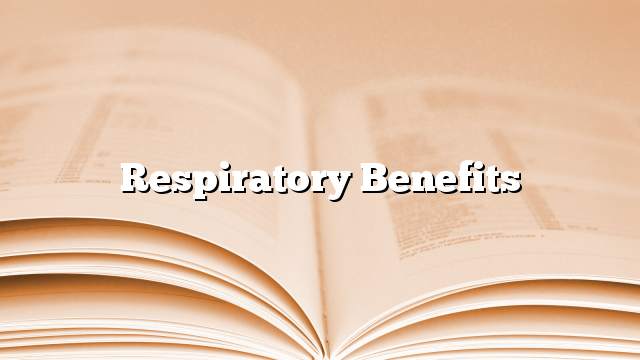Respiratory system
It is the device that provides the human body with the oxygen gas necessary for its survival and daily activities, and also rid the body of carbon dioxide resulting from the process of oxidation, in the processes of inhalation and exhalation.
Respiratory parts
- the nose.
- Pharynx.
- throat.
- Bronchi.
- Bronchitis.
- The lungs.
- Pleural membrane.
- Pulmonary blood vessels.
Importance of respiratory functions
- Supply the body with oxygen through the nose from the air, and deliver it to the lungs in a process called (inhalation), and is oxidized oxygen in the lungs as a result of his molecular pressure in the blood vessels and alveoli.
- Carbon dioxide (CO2) is emitted in the process of exhalation by the difference in the molecular pressure of this gas in the alveoli, veins and cells.
- The respiratory system maintains pH, or acid-base balance.
- The respiratory system works to balance the heat of the body, so that the temperature rises as a result of the demolition, construction and combustion that occur within the human body, and rid the body of this excess heat a number of means are:
- Lung, Endocrine and Nervous System The respiratory system renews the air in the lungs through mechanical methods, primarily the movement of muscles in the respiratory system, which extend and reduce the size of the thorax during breathing and breathing, and work to overcome resistance to pulmonary edema and airways , And this process is divided into two consecutive and consecutive successive phases:
- The process of inhalation: The process requires the effort of the respiratory tracts, especially the muscles, so as to introduce air into the lungs.
- Exhalation: It is a process that does not require much effort during the process of removing the air from the body, and inevitably produces the result of the process of inhalation.
Respiratory system and breathing play a major role in the maintenance of life, where the way to get rid of carbon dioxide; because the presence of this gas inside the body works to destroy the body’s cells, and replace this gas gas oxygen, and this gas is the basis of life and health of the body for his role in The continuation of vital processes within the human body, as the supply of oxygen through this device is a continuous process without interruption, and any lack of it leads to a decrease in perfusion in the brain, leading to symptoms of vertigo and fatigue, and if the interruption completely, this leads to the cessation of the heart muscle, And thus loss of life if not Initial aid working on cardiopulmonary resuscitation at the same time, and here we learn that the respiratory system is to supply the heart with oxygen, which in turn pump the oxygen through the blood to the various members of the human body.
